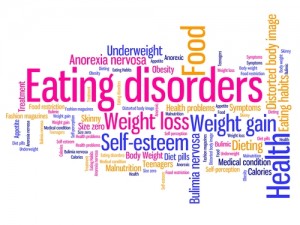 When an individual initially turns to drug use, they are often doing so because they feel that drug use will help them address and resolve some problem in their life. What they fail to consider, however, is the extensive problems that often result from drug use, abuse and addiction. By the time they do recognize how thoroughly damaging drug use is to their health, relationships and life, they are often trapped in drug use and cannot even conceive of a life without drugs. It is for this reason that individuals who are suffering from drug abuse and addiction problems need professional rehabilitation treatment services in order to thoroughly address and resolve the causes and effects of their drug use.
When an individual initially turns to drug use, they are often doing so because they feel that drug use will help them address and resolve some problem in their life. What they fail to consider, however, is the extensive problems that often result from drug use, abuse and addiction. By the time they do recognize how thoroughly damaging drug use is to their health, relationships and life, they are often trapped in drug use and cannot even conceive of a life without drugs. It is for this reason that individuals who are suffering from drug abuse and addiction problems need professional rehabilitation treatment services in order to thoroughly address and resolve the causes and effects of their drug use.
Drug Use and Eating Disorders
Once an individual has been taking drug substances for long enough that their body tolerates and depends upon these substances, their every thought, decision and action is often based around how to obtain, use and recover from drugs. This means that the individual will often neglect many important aspects of their life in favor of furthering their drug use. This includes neglecting their physical health and nutrition, which means they may suffer from eating disorders.
The two most common types of eating disorders are bulimia nervosa, which is an individual’s loss of control over eating which leads to food binges and then purging to keep one’s weight down, and anorexia nervosa, which is an individual’s frantic pursuit of thinness often through under-eating or frequently purging after eating. While there may be a variety of reasons for why individuals suffer from these eating disorders, researchers Lilenfeld and Kaye participated in a series of fifty-one studies into eating disorders and discovered that there was definitely some connection between drug use and eating disorders. Specifically, these studies found that anywhere between zero to six percent of anorexics suffered from alcohol abuse or dependence problems, and anywhere between five to nineteen percent of anorexics suffered from other drug abuse or dependence problems, while anywhere between fourteen to forty-nine percent of bulimics suffered from alcohol abuse or dependence problems and anywhere between eight to thirty-six percent of bulimics suffered from other drug abuse or dependence problems. These studies clearly indicate that in many cases, individuals who are suffering from alcohol or drug abuse and dependence problems also suffer from eating disorders.
In addition to the Lilenfeld and Kaye studies, there were studies made by researchers Schuckit, Tipp, Anthenelli and Buchotz that demonstrated that between twenty-five to fifty percent of participating individuals who suffered from bulimia also drank one or more times per week or had some evidence of a problem with street drug use. Another study indicated that anywhere between fourteen and fifty percent of individuals studied met the criteria for alcohol dependence, and still another study found that twelve percent of these individuals suffered from severe alcohol problems.
What Comes First
While these studies definitely shed some light on the relationship between drug use and eating disorders, one may want to look further into whether drug abuse problems stem from eating disorders, or eating disorders stem from drug abuse problems. A study by researchers Strober, Freeman, Bower and Rigali indicated that individuals who suffered from binge eating earlier in their life (a form of anorexia nervosa) were more likely to become substance abusers than those individuals who suffered from binge eating at a later stage in their life. Another study discovered that thirty percent of individuals who were alcohol dependent also had lifetime histories of eating disorders, and the eating disorders preceded the alcohol problems.
The plain fact is that either problem may come first – and may subsequently be “handled” by the individual resorting to the other action. For example, an individual who is suffering from an eating disorder may turn to drug use as a solution to this problem, while on the other end an individual who is suffering from drug abuse or addiction problems may suffer from extensive damaging physical effects as a result, including eating disorders. Whatever came first, the truth is that the individual needs professional help to resolve both conditions, and re-establish the foundation necessary for a healthy, happy and productive future.